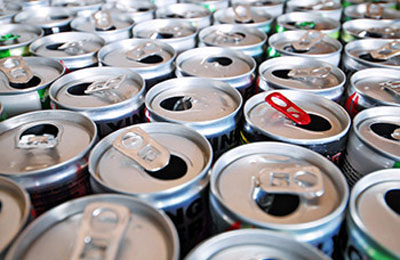
Restrictions on the sale of energy drinks in Bahrain
have been proposed
GCC-wide energy drinks ban proposed
MANAMA, May 12, 2015
Energy drinks could be banned in Bahrain under a new GCC-wide proposal currently under discussion.
The idea was put forward at a high-level meeting of health ministries, which constitute the GCC Food Safety Committee, at a summit held in Qatar last week, said a report in the Gulf Daily News (GDN), our sister publication.
However, before any action is taken a study will be carried out to investigate consumption patterns for energy drinks among different age groups in the Gulf.
It comes amid fears that schoolchildren in Bahrain are consuming a minimum of two of the drinks every day, according to Bahrain Health Ministry Public Health Directorate nutrition section chief Dr Nadia Gharib.
"One should understand that these drinks have high levels of caffeine and sugar, which boosts energy levels for a short time but can also lead to symptoms such as an irregular heartbeat, breathing problems and other complications," she said.
"We will launch this study in the coming months to better understand Bahrain's consumption of these drinks and also establish which age groups should not have them."
Although not in favour of an outright ban on the drinks, Dr Gharib said that age restrictions should be imposed on the sale of such products.
"Schoolchildren consume between one or two cans of these drinks on a daily basis," she said.
"In some countries, such as the US, children below the age of 12 are not allowed energy drinks and we also want to regulate consumption based on age."
An energy drink is a type of beverage containing a stimulant, chiefly caffeine, which is marketed as providing mental and physical stimulation.
There are many brands and varieties available that contain various levels of caffeine, vitamins, and other ingredients such as taurine, ginseng, and guarana.
A World Health Organisation study last year found that energy drinks with high caffeine levels could cause health problems such as palpitations, hypertension, vomiting, convulsions and in extreme cases heart failure leading to death.
Meanwhile, a recent European Food Safety Authority report found that 30 per cent of adults, 68 per cent of adolescents, and 18 per cent of children under the age of 10 consume energy drinks in Europe.
Bahrain's own study into the drinks will begin soon through the distribution of questionnaires, Dr Gharib said.
Health Ministry health promotion director Dr Amal Al Jowder added that Saudi Arabia last year banned the sale of energy drinks in government, health and education facilities and outlawed all forms of advertising for the drinks, including the sponsorship of any event by energy drinks companies.
"There is no doubt that these energy drinks can affect public health," she said.
"We cannot just ban them outright, but similar to Saudi Arabia we should impose restrictions on the marketing of these products." - TradeArabia News Service







